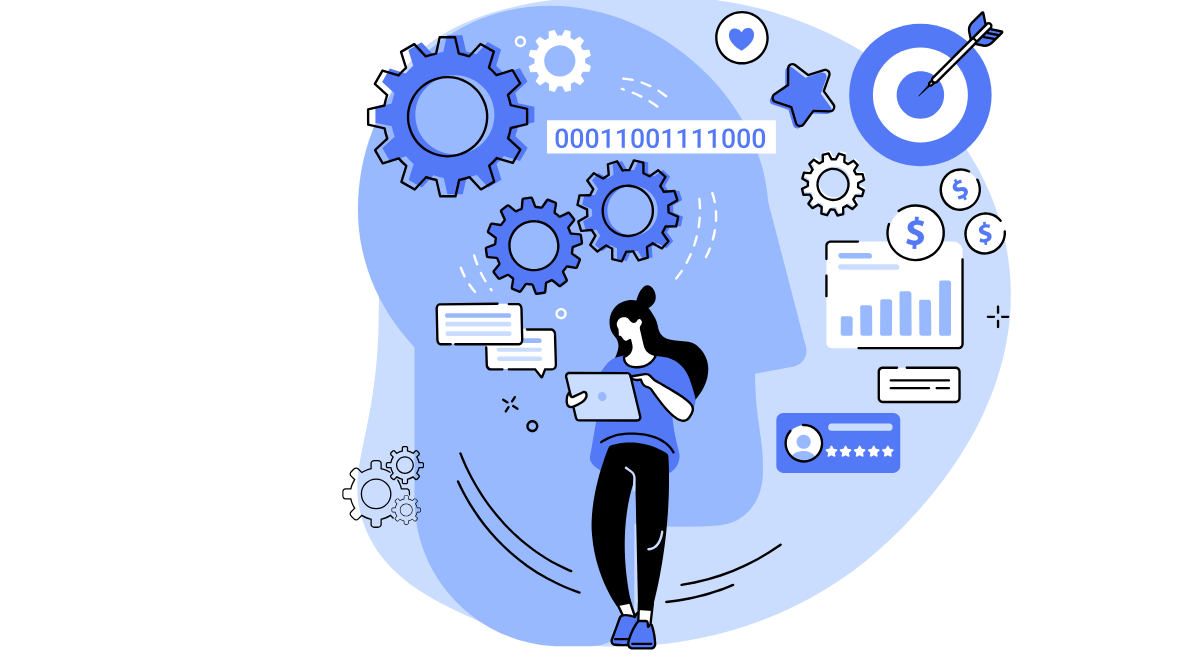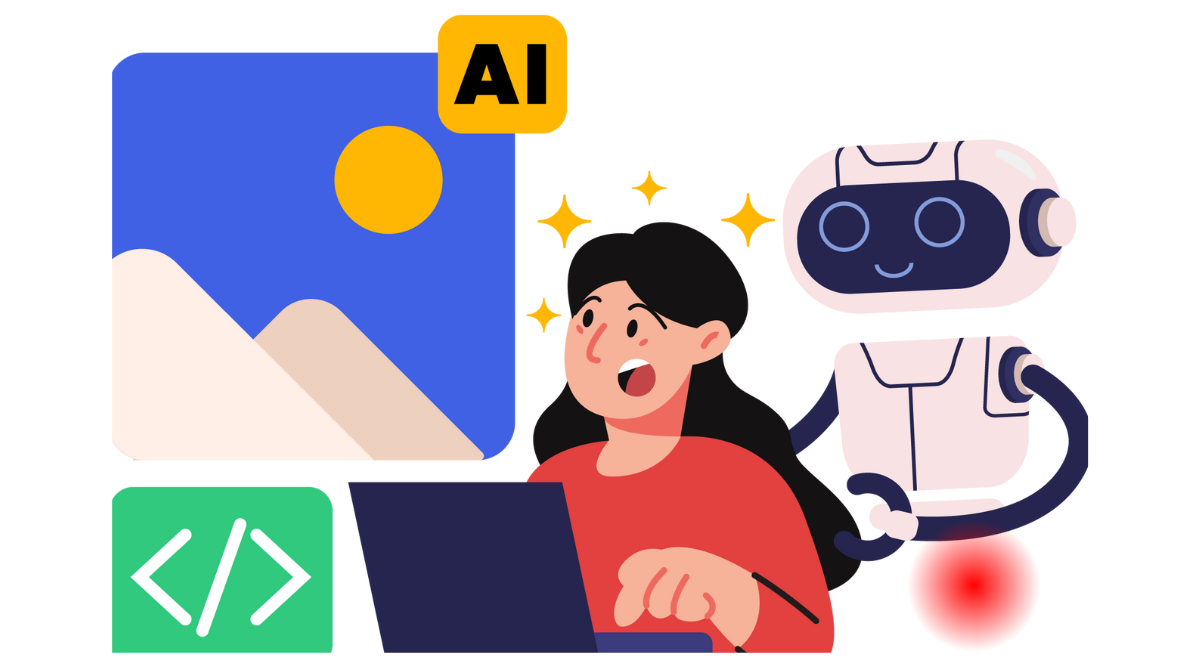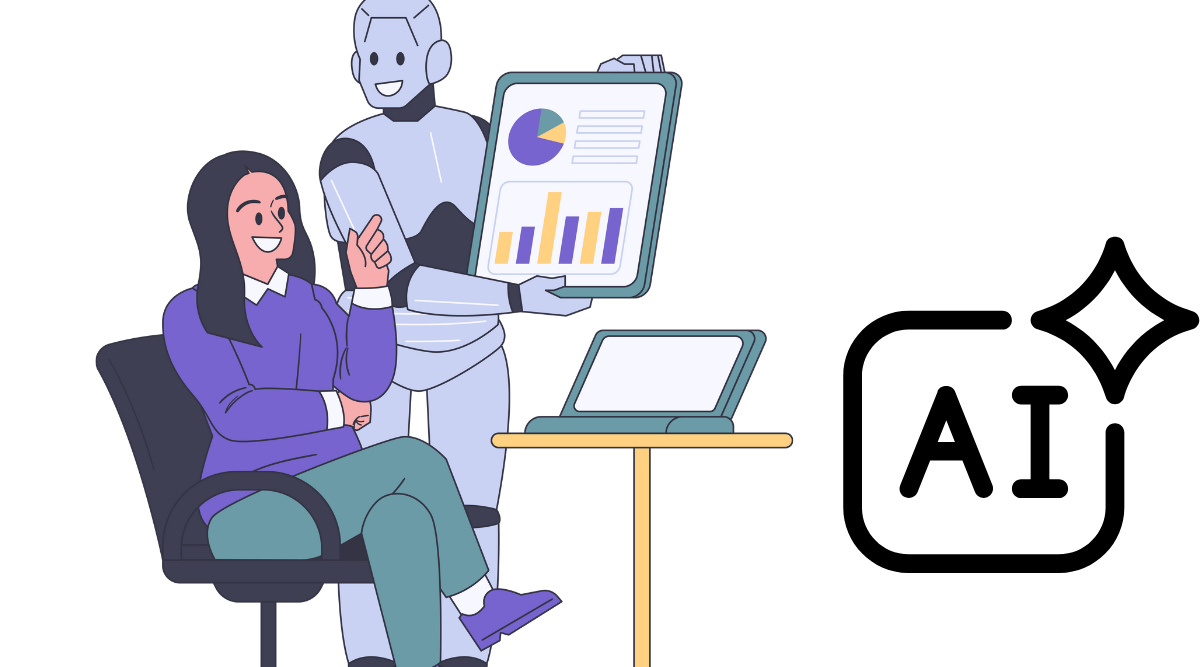Revolutionizing Healthcare Sales: AI SDR Automation for Maximum Efficiency
Discover how AI SDR automation transforms healthcare sales, enhancing efficiency and patient engagement.

In the rapidly evolving landscape of healthcare, bridging the gap between innovation and practical application is vital. One such innovation making waves is AI SDR (Sales Development Representative) automation, a technological advancement poised to significantly impact healthcare sales processes. This integration not only amplifies efficiency but also enhances patient engagement—a critical component for healthcare providers like Floworks.ai. As a company at the forefront of AI-driven solutions, Floworks.ai is committed to assisting healthcare organizations in overcoming existing sales challenges, ultimately boosting operational effectiveness.
Understanding AI SDR: A Brief Overview
AI SDR automation leverages artificial intelligence to handle routine sales tasks, such as lead generation, appointment scheduling, and initial customer interactions. This automation frees up human SDRs to focus on complex conversations and relationship building. AI SDRs excel in processing vast amounts of data quickly, ensuring sales processes run smoothly. With capabilities like natural language processing and machine learning, AI SDRs can engage potential clients, answer basic inquiries, and tailor interactions based on the gathered data.
For healthcare, where patient interactions and data privacy are paramount, AI SDR offers a secure and efficient solution. By understanding patient needs and preferences through data analysis, AI SDRs enhance the patient experience while maintaining compliance with privacy regulations.

Why Healthcare Needs AI SDR Automation
Healthcare is a complex industry where the need for efficient sales processes is more critical than ever. Healthcare providers face unique challenges such as regulatory compliance, intricate patient data management, and the necessity for patient-centered communication.
- Strengthen Communication: By automating initial touchpoints, AI SDRs ensure timely and relevant communication with potential and current patients.
- Maintain Accuracy: Utilizing AI minimizes human error, especially in data-driven tasks.
- Improve Response Times: AI SDRs can respond to inquiries instantly, keeping potential clients engaged and improving the chances of conversion.
Through these capabilities, AI SDR solutions enhance the overall patient experience, ensuring healthcare providers like Floworks.ai remain competitive and patient-focused.
Current Challenges in Healthcare Sales Worth Addressing
The healthcare sales environment is fraught with challenges that require innovative solutions. Some of the hurdles include:
- Data Overload: Healthcare organizations deal with vast amounts of data daily. Sifting through this information manually can be overwhelming and inefficient.
- Regulatory Restrictions: Compliance with regulations like HIPAA is mandatory but complicated, necessitating solutions that prioritize data security.
- Resource Limitations: Many healthcare facilities face resource constraints, demanding solutions that optimize existing workforce deployment.
- Patient-Centricity: Patients expect personalized and attentive service, a task that is difficult to meet consistently through human-only interaction.
AI SDR automation provides a viable solution to these challenges by ensuring better data management, enhanced regulatory compliance, optimized use of resources, and a consistent, patient-centered interaction model.
Benefits of AI SDR Automation for Healthcare
Enhancing Sales Efficiency with Automation
AI SDR automation significantly streamlines healthcare sales processes. By delegating routine and high-volume tasks to AI, human SDRs can concentrate on cultivating complex client relationships. This delegation means:
- Increased Productivity: AI systems handle repetitive tasks, allowing human staff to focus on strategic activities.
- Higher Conversion Rates: AI can manage more leads simultaneously, engaging them effectively through personalized messaging.
The frictionless integration of AI SDRs into healthcare sales teams ensures that no potential lead is lost due to manual oversight, paving the way for more successful interactions and conversions.
Improving Patient Engagement and Satisfaction
Engaging effectively with patients is crucial for healthcare providers. AI SDRs can tailor communications based on patient preferences and historical data insights, enhancing engagement levels and improving satisfaction. Key impacts include:
- Customized Interactions: Patients receive information and services suited to their specific needs and timelines, increasing trust and satisfaction.
- 24/7 Availability: AI SDRs can operate beyond business hours, ensuring patient inquiries are addressed promptly, reducing frustration.
By prioritizing patient experience, AI SDR technology fosters trust and strengthens the relationship between healthcare providers and their patients.
Cost-Effectiveness and Time Savings for Health Organizations
AI SDR automation offers substantial cost savings and operational efficiencies for health organizations. With AI handling high-volume tasks:
- Reduced Staffing Costs: There’s less need for a large sales team, as AI covers many routine roles.
- Efficient Time Allocation: Staff can utilize their time for complex problems, innovation, and deepening patient care rather than administrative duties.
This level of efficiency not only brings cost savings but also places health organizations in a better position to invest in further patient-centric innovations and service improvements.
Implementing AI SDR in Health Organizations
Steps to Integrate AI SDR Solutions
The transition to AI-driven sales requires a structured approach:
- Needs Assessment: Identify the specific sales processes that could benefit from automation.
- Vendor Selection: Choose a partner, like Floworks.ai, with expertise in healthcare and AI solutions.
- Pilot Program: Test the AI SDR solution within a controlled environment to collect data and make necessary adjustments.
- Full Deployment: Roll out the solution organization-wide, using insights from the pilot to ensure seamless integration.
Such structured steps ensure that the integration aligns with the organization’s goals and patient care standards.
Training and Support for Healthcare Teams
Successful implementation of AI SDR technology requires comprehensive training for healthcare teams. Key training aspects include:
- Understanding AI Functionality: Employees must comprehend how AI SDR tools operate and their role in patient interaction.
- Data Interpretation Skills: Staff should know how to use insights generated by AI to enhance personal interactions and decision-making.
Continued support from vendors like Floworks.ai ensures that staff can leverage AI SDR tools effectively, maximizing patient benefits and organizational gains.
Overcoming Integration Challenges
While AI SDR adoption presents immense potential, challenges like resistance to change and technical hiccups can arise. To overcome these:
- Clear Communication: Ensure all stakeholders understand the purpose and benefits of AI SDR.
- Adaptability: Be prepared to iterate solutions based on feedback and performance data.
- Collaboration with IT: Work closely with IT teams to address technical issues swiftly.
Preparing for these challenges in advance ensures a smoother transition and that the potential benefits of AI SDR automation are fully realized.
Case Studies: Successful AI SDR Use in the Health Sector
Case Study 1: AI SDR in Large Health Networks
In large health networks, managing vast amounts of patient data and ensuring timely communication across multiple facilities is challenging. One notable example involves a major hospital group that implemented Floworks.ai's AI SDR solution to transform their patient outreach strategy.
Implementation Details:
- Objective: To enhance appointment scheduling efficiency and improve patient follow-up rates.
- Approach: The AI SDR system was integrated into the existing CRM to streamline patient interactions and manage appointment requests.
- Outcome: Within six months, the hospital saw a 30% increase in scheduled appointments and a 20% improvement in patient follow-up compliance.
By automating routine communication tasks, the network was able to redirect human resources towards more complex care coordination, ultimately enhancing patient experience.

Case Study 2: Small Clinics Maximizing with AI
Small clinics often operate with limited staff, making efficient use of technology crucial for their success. A family clinic partnered with Floworks.ai to employ AI SDR automation targeting new patient acquisition and retention.
Implementation Details:
- Objective: To double their patient intake without increasing staffing costs.
- Approach: The AI SDR was used to automate initial patient contact and streamline follow-up appointment reminders.
- Outcome: The clinic reported a 50% rise in patient registrations within the first quarter, attributing it to the AI's effectiveness in quickly responding to inquiries and providing personalized patient interactions.
This case highlights how small-scale health providers can substantially benefit from AI SDR automation, extending their reach and enhancing service delivery.
Lessons Learned from Early Adopters
From these applications, several insights emerge regarding the strategic use of AI SDR:
- Customization is Key: Solutions must be tailored to meet specific needs, ensuring alignment with organizational goals and patient expectations.
- Continuous Evaluation: Regular performance assessments help refine AI functionalities, enhancing their effectiveness and adaptation over time.
- Staff Engagement: Involving staff in the AI implementation process fosters a sense of ownership and improves adoption rates across the organization.
These lessons underscore the importance of thoughtful implementation and evaluation, ensuring a successful transition to AI-supported sales processes.
Technological Innovations Driving AI SDR in Healthcare
Recent Advances in AI-Driven Sales Tools
Healthcare sales tools have evolved significantly, driven by technological advancements in AI. Recent innovations include:
- Natural Language Understanding (NLU): Enhances the AI's ability to interpret patient inquiries more accurately, fostering meaningful interactions.
- Predictive Analytics: Utilizes historical data to anticipate patient needs and optimize contact strategies.
- Sentiment Analysis: Gauges the tone of patient interactions to tailor responses and improve satisfaction.
These technologies drive the AI's ability to operate autonomously, maintaining a high level of service and engagement.
Role of Machine Learning in Sales Development
Machine learning (ML) is pivotal in the ongoing refinement of AI SDR systems. By analyzing vast data sets, ML algorithms improve AI decision-making over time, fine-tuning communications and enhancing accuracy in patient segmentation.
Impactful ML Applications:
- Lead Scoring: Determines the value of potential patients based on predictive behaviors, enabling targeted follow-ups.
- Personalization Engines: Adapts messaging and content to individual patient profiles, ensuring relevance and improving conversion rates.
Such ML-driven capabilities allow healthcare providers to tailor their sales efforts, enhancing engagement and fostering long-term patient relationships.

Future Trends: What to Expect in Health AI
The future of AI SDR in healthcare is promising, with several trends poised to shape its landscape:
- Integration with Telehealth: As remote care models grow, AI SDRs will play a critical role in managing initial consultations and follow-ups.
- Advancements in Voice Recognition: Improved voice interfaces will enable more natural interactions, expanding access and easing use for patients of all demographics.
- Increased Focus on Data Security: As AI SDR tools become more prevalent, ensuring robust data protection will remain a top priority, particularly in handling sensitive health information.
These trends highlight a growing alignment between technology and patient care, bolstering the AI SDR's role in healthcare transformation.
AI SDR Automation vs. Traditional Sales Methods
Comparative Analysis of AI vs. Human SDR
AI SDR automation differs markedly from traditional human-led sales methods. A comparative analysis reveals distinct advantages:
- Consistency: AI systems provide uniform service quality without the variability of human performance.
- Availability: Unlike human SDRs, AI operates around the clock, ensuring patient queries are addressed promptly at any time.
- Scalability: AI can manage a higher volume of interactions simultaneously, something difficult to achieve with a solely human workforce.
However, personalized human elements, such as empathy and nuanced understanding, remain irreplaceable in sensitive interactions.
Scalability and Flexibility of AI Solutions
One of AI SDR automation's major strengths is its scalability:
- Handling Growth: As healthcare demands grow, AI systems easily expand capacity to address surging interaction volumes.
- Adaptability: AI can quickly pivot and adjust its strategies based on new data and changing organizational needs, maintaining alignment with healthcare goals.
This flexibility ensures that AI-driven sales solutions can meet today’s demands and tomorrow’s challenges.
Potential Drawbacks and Solutions
Despite the advantages, there are drawbacks to consider:
- Loss of Personal Touch: Automated interactions may lack the empathetic nuances necessary in certain patient contexts. Solution: Balance AI with human oversight, ensuring empathetic communication when needed.
- Technical Dependence: Over-reliance on AI systems could lead to operational disruptions if tech issues arise. Solution: Establish comprehensive support and backup systems to mitigate technology failures.
Recognizing these potential pitfalls and preparing solutions ensures that AI SDR deployments remain effective and patient-focused, offering a sophisticated blend of automation and human touch.
Conclusion: The Future of AI SDR in Healthcare
The implementation of AI Sales Development Representative (SDR) automation in healthcare is reshaping how organizations approach their sales and patient engagement processes. By integrating AI SDR solutions, healthcare providers can address significant challenges such as managing large volumes of data, ensuring compliance with regulatory standards, and delivering personalized patient experiences. The transformative capabilities offered by AI SDRs—ranging from increased efficiency to improved patient satisfaction and cost savings—make them invaluable assets in advancing healthcare sales strategies.
Floworks.ai is dedicated to empowering healthcare organizations with these innovative solutions. By offering expert guidance, comprehensive support, and cutting-edge AI technology, Floworks.ai not only enhances organizational capabilities but also fortifies the crucial bond between healthcare providers and their patients. The promising future of AI SDR in healthcare highlights a pathway to more efficient operations, ultimately leading to better patient outcomes.
Healthcare providers stand on the cusp of significant innovation, and incorporating AI SDRs is a decisive step toward future-focused growth. As we look ahead, the potential of AI in healthcare remains vast, promising continual improvement in the quality and reach of patient care services. Providers are encouraged to embrace these changes, investing in solutions that position them at the confluence of technology and exceptional patient care.
FAQ on AI SDR Automation in Healthcare
How does AI SDR benefit patient engagement?
AI SDRs enhance patient engagement by offering tailored communication that addresses individual patient needs. They utilize data analytics to understand patient preferences, ensuring every interaction is personalized and relevant. This personalization builds trust and improves the overall patient experience by providing timely responses and valuable information that resonates with patient concerns.
What are the initial costs involved in AI implementation?
The initial costs of implementing AI in healthcare can vary greatly depending on the size of the organization and the specific solutions adopted. Initial investments typically include purchasing AI software, integrating it into existing systems, and training staff. Despite the upfront costs, many organizations find that the efficiencies and cost reductions achieved over time offer a favorable return on investment.
Are there any data privacy concerns with AI SDR in health?
Data privacy is a critical concern when implementing AI SDRs in healthcare. Ensuring compliance with regulations such as HIPAA is paramount. AI solutions should be designed with robust security measures to protect patient data, including encryption, access controls, and regular audits. Partnering with experienced vendors like Floworks.ai, who understand these requirements, can aid in maintaining the integrity and confidentiality of sensitive health information.
Can AI SDR automation replace human sales teams entirely?
AI SDR automation is not designed to replace human sales teams but rather to complement them. While AI can handle routine tasks and data processing efficiently, human touch remains crucial for complex negotiations and building deep relationships. AI SDRs free up human representatives to focus on these higher-value activities, thus enhancing the overall effectiveness of the sales team.
How soon can healthcare organizations see results after implementing AI SDR solutions?
The timeline for seeing results from AI SDR implementation can vary. Some organizations may notice immediate improvements in efficiency and patient interactions, particularly if they address processes with high volumes of routine tasks. Full benefits, however, often emerge over several months as the system learns to optimize interactions and processes. Organizations can accelerate this period through continuous learning and adaptation based on initial outcomes.

